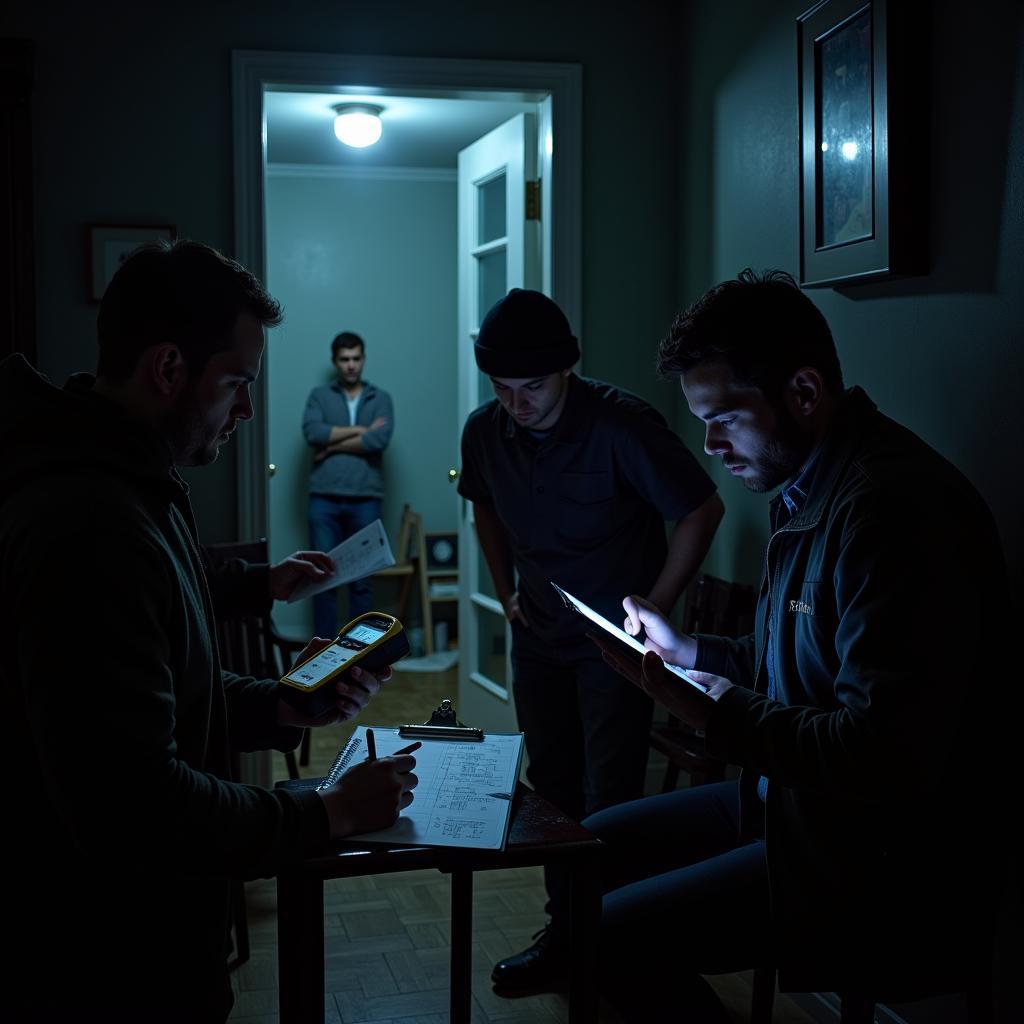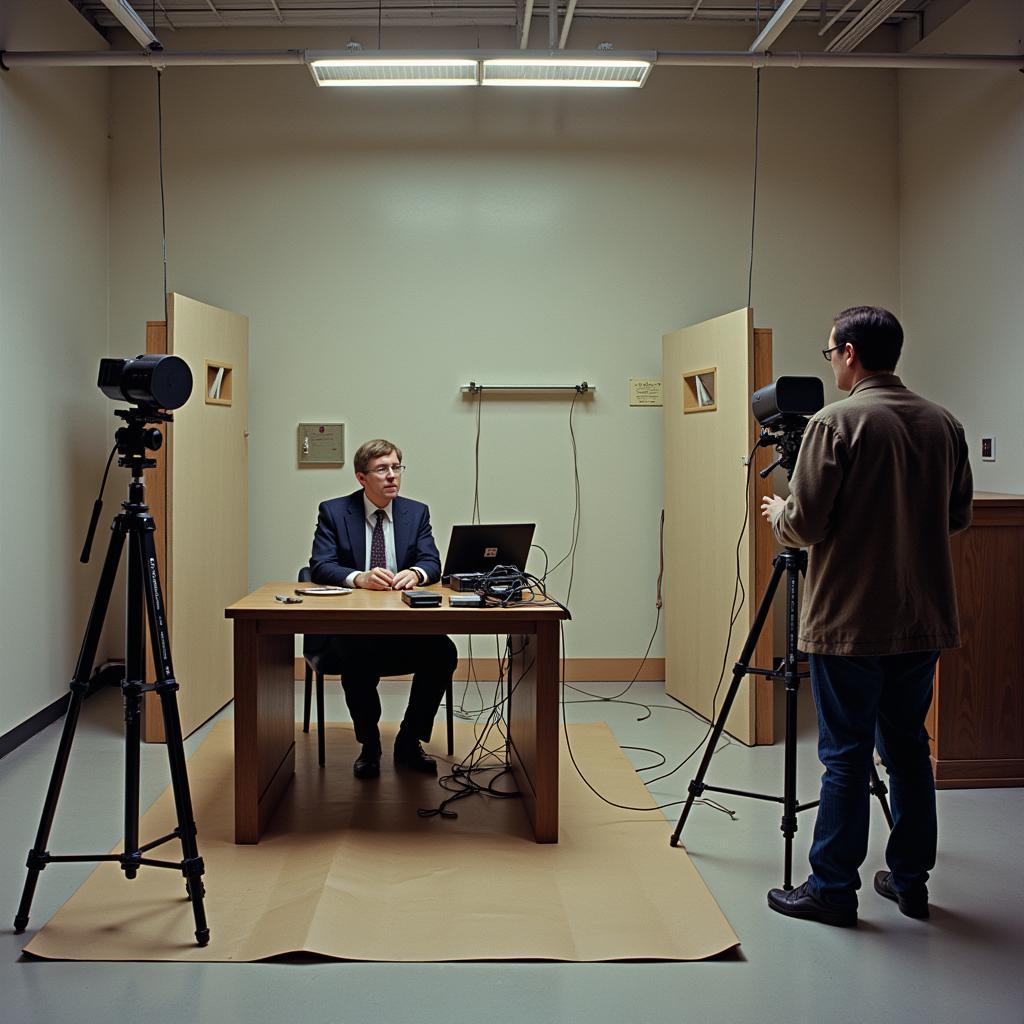Control Variable Research is a cornerstone of scientific investigation, particularly within paranormal studies. It allows researchers to isolate the impact of specific variables while minimizing the influence of confounding factors. By carefully controlling these extraneous elements, we can draw more accurate conclusions about the relationships between variables and better understand the phenomena we observe. After reading this, you will understand how crucial control variables are in paranormal research. Let’s delve into the intricate world of control variables and their significance in unraveling the mysteries of the unexplained.
See our page on research in management.
What are Control Variables and Why are They Important?
Control variables represent the constants in an experiment. They are factors that are held consistent or eliminated to prevent them from affecting the relationship between the independent and dependent variables. In paranormal research, where so many unknown forces might be at play, controlling known variables is paramount. Imagine investigating a haunted house: factors like temperature, electromagnetic fields, and even the psychological state of the investigators could influence the perceived paranormal activity. By controlling these, we can better isolate the potential paranormal influence.
How Control Variables Help Isolate Paranormal Phenomena
Control variables are essential for isolating the impact of potential paranormal phenomena. By systematically eliminating or holding constant other potential explanations, researchers can focus on the unique effects of the variable of interest. This allows for a more rigorous analysis of the data and helps to minimize bias in the interpretation of results.
 Control Variables in Paranormal Investigation
Control Variables in Paranormal Investigation
Implementing Control Variables in Paranormal Investigations
Putting control variables into practice requires careful planning and execution. Researchers must identify potential confounding variables relevant to their specific investigation. This often involves extensive background research and a thorough understanding of the phenomena under study. Consider, for example, an investigation into alleged psychic abilities. Controlling for sensory leakage, subtle cues, or even unconscious bias is crucial for obtaining reliable and meaningful results.
Practical Examples of Control Variable Implementation
Consider an experiment designed to test the effectiveness of a purportedly psychic medium in identifying objects hidden in a sealed box. Control variables might include the material of the box (to prevent any unintentional sensory clues), the distance between the medium and the box, and the presence of any other individuals in the room. These controls help to isolate the medium’s abilities and minimize the possibility of alternative explanations for correct identifications.
 Control Variable Experiment Setup
Control Variable Experiment Setup
See our post about research results are approximations.
Addressing Challenges and Limitations
Even with careful planning, implementing control variables in paranormal research presents unique challenges. The very nature of the phenomena under investigation often involves factors that are difficult, if not impossible, to fully control. This inherent uncertainty necessitates a flexible and adaptive approach to research design.
Navigating the Unknown in Paranormal Research
One major challenge is the lack of established baseline data for many paranormal phenomena. This makes it difficult to determine what constitutes a “normal” versus a “paranormal” event. Researchers must rely on careful observation, detailed documentation, and a healthy dose of skepticism to evaluate the validity of their findings.
“Controlling for the unknown is a paradox in itself, yet crucial in paranormal research. We strive to minimize external influences, recognizing that the true nature of the phenomena we study remains elusive,” explains Dr. Amelia Vance, a leading researcher in parapsychology.
Check out more information on AP Psychology FRQ Research Methods.
Another expert, Dr. Julian Reyes, adds, “Control variable research in this field is akin to navigating uncharted territory. We must be prepared to adapt our methods and embrace the ambiguity inherent in exploring the unknown.”
Conclusion
Control variable research is an indispensable tool in the pursuit of understanding paranormal phenomena. By carefully managing extraneous factors, we can better isolate the potential impact of the unexplained and draw more informed conclusions. While the inherent challenges of this field require an adaptable and nuanced approach, control variables provide a crucial framework for rigorous scientific investigation in the realm of the paranormal. Understanding and implementing control variable research allows us to move beyond speculation and toward a more evidence-based understanding of the mysteries that surround us. Remember, control variable research provides the foundation for credible exploration in paranormal investigation.
Review our article on staging sex research.
FAQ
- What is the main purpose of a control variable?
- How do control variables impact the validity of research findings?
- What are some common challenges in implementing control variables in paranormal research?
- Can all variables be controlled in a paranormal investigation?
- What strategies can be used to address the limitations of control variables in this field?
- Why is it important to document the control variables used in a study?
- How can I learn more about applying control variable research to my own paranormal investigations?
You can find additional resources on world of wonders taken over research.
Need help with your Paranormal Research? Contact us! Phone: 0904826292, Email: research@gmail.com Address: No. 31, Alley 142/7, P. Phú Viên, Bồ Đề, Long Biên, Hà Nội, Việt Nam. We have a 24/7 customer service team.